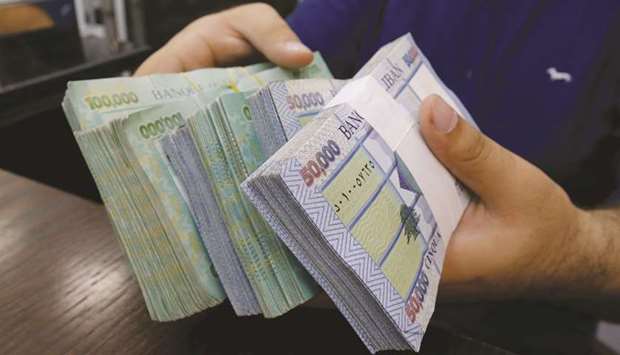Lebanon’s plight is turning into a crisis that could ultimately threaten the Middle Eastern country’s economic foundations, according to its finance minister.
“The crisis today has started to transform into a financial crisis from an economic crisis,” Ali Hassan Khalil was cited as saying by Lebanon’s state-run National News Agency. “We hope that it doesn’t turn into a monetary crisis that will lead to the Lebanese losing trust in their country’s future and their institutions.”
A political stalemate that’s delayed the formation of a government seven months after elections is undermining plans for reforms that would unlock $11bn in aid for Lebanon. The impasse in one of the world’s most indebted countries comes as the central bank’s ability to paper over the crisis has been constrained by years of anaemic economic growth, slowing foreign inflows and a surge in borrowing costs.
Khalil’s political faction is allied with Hezbollah, an Iranian-backed group that is at the heart of the political crisis delaying the formation of Lebanon’s government by refusing to back down over its demands to have a meaningful representation in the cabinet.

A money exchange vendor displays Lebanese pound banknotes at his shop in Beirut (file). A political stalemate that’s delayed the formation of a government seven months after elections is undermining plans for reforms that would unlock $11bn in aid for Lebanon.
